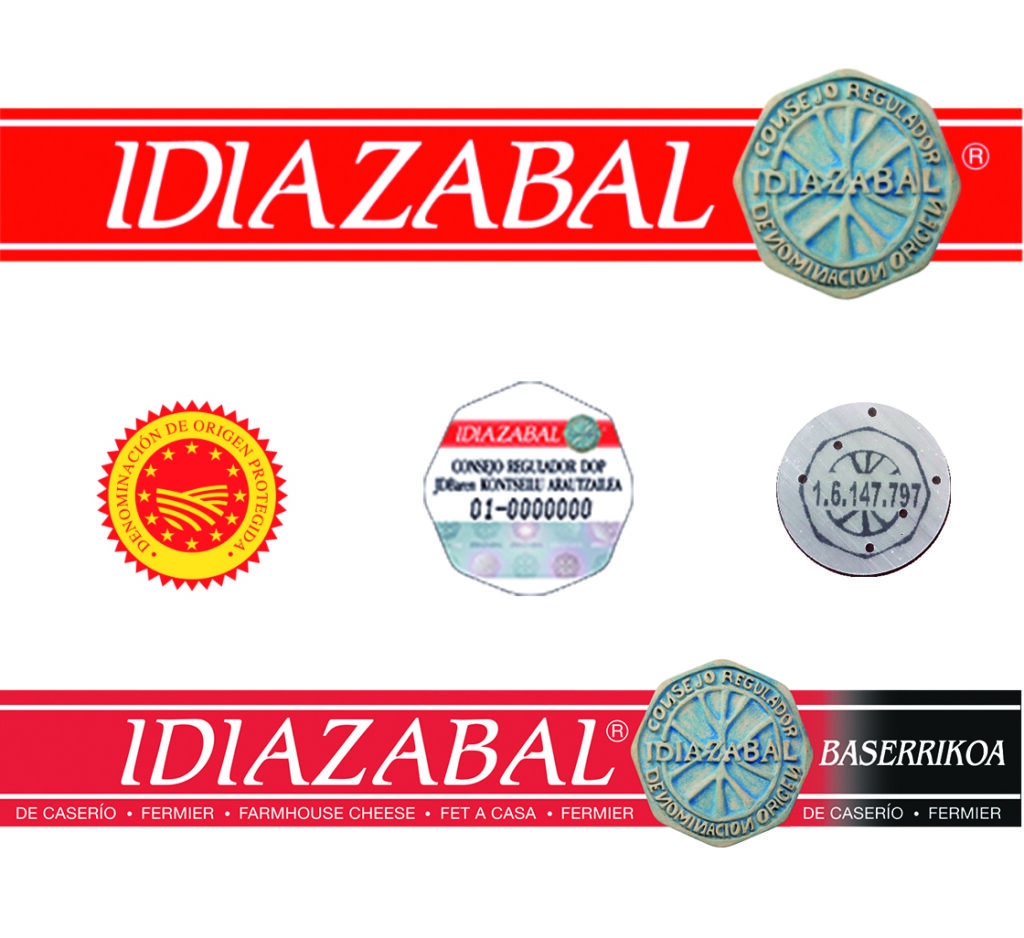Type
Entrante
People
4 personas
Time
45 minutos

Since time immemorial, shepherds and shepherds have made raw milk from Latxa and Carranzana sheep. This prized mature cheese with pressed paste weighs between 1 and 3 kilos and can be presented unsmoked or smoked, depending on the gastronomic tradition of the different valleys. This ancient tradition coexists with the most modern production techniques and an extraordinary quality cheese is achieved, with all the hygienic-sanitary guarantees.

The milk and cheese production and processing area is the Basque Country and Navarra, except for municipalities which make up the Roncal Valley.

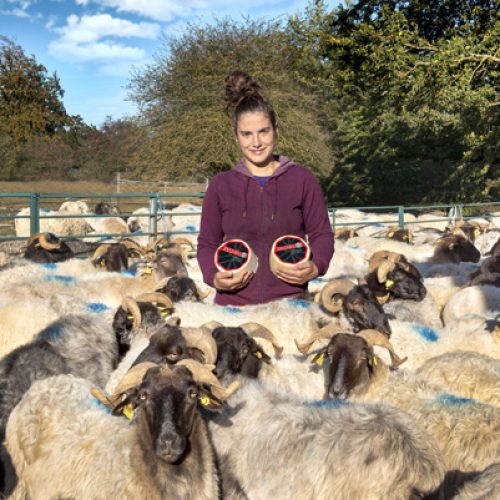
Idiazabal cheese adds value as an essential component of a form of ancestral grazing which respects the environment and helps preserve the landscape of our natural surroundings.
Latxa and Carranzana sheep are small, hardy animals which produce high quality milk and are excellent lamb breeders. They also contribute to sustainability thanks to their ability to take advantage of the pastures on our mountainsides and in our valleys, and encourage hundreds of families to stay in rural and mountainous areas.
Cheese with the Idiazabal Designation of Origin is unique and unrepeatable because its sensory nuances vary according to the time of year, the grazing area, the weather and the hands of the local cheesemakers.
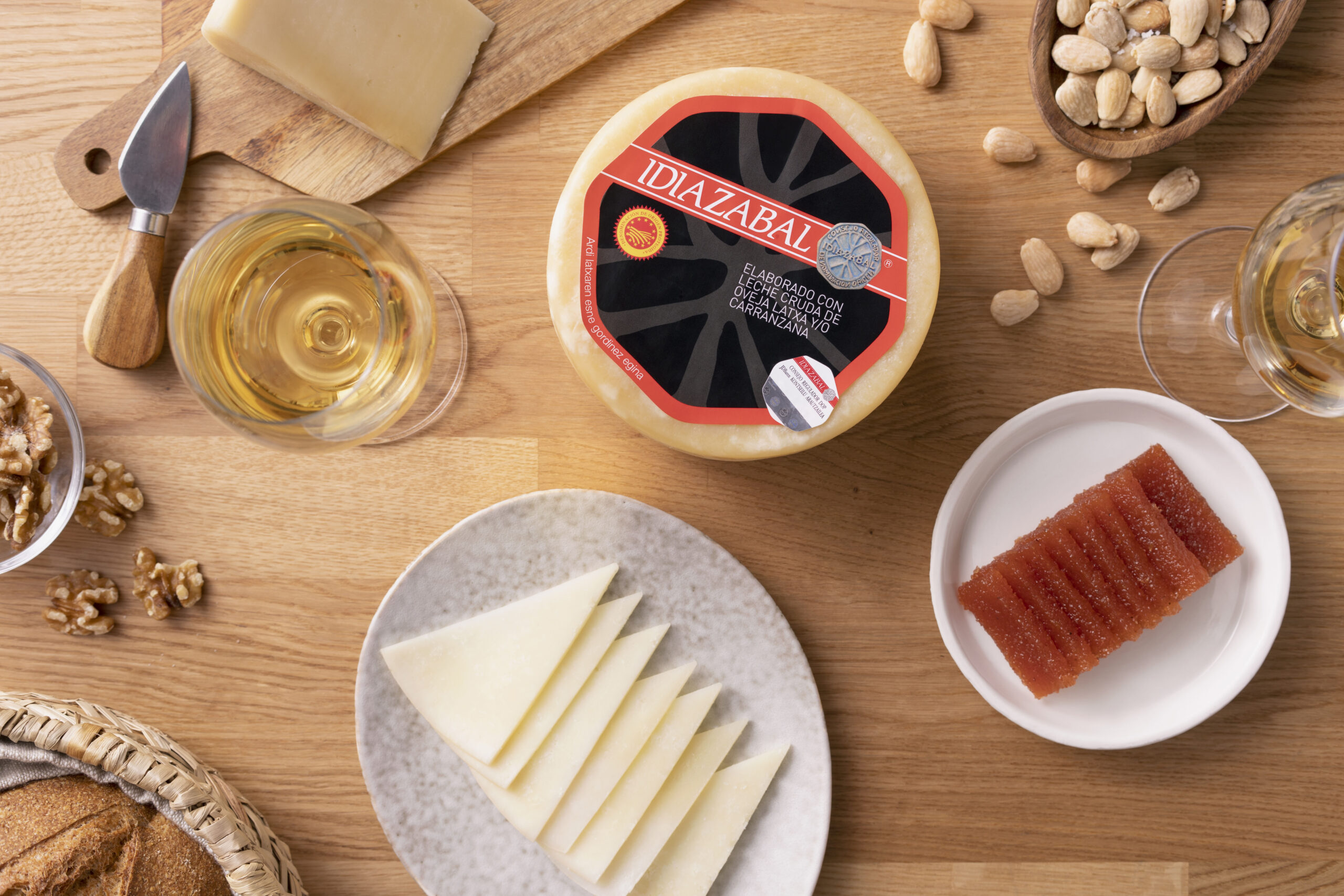
The Designation of Origin came into being in October 1987 to defend the market and guarantee consumers of the product’s origin and quality. It is the body which controls the origin of the milk and the quality of the cheese from a physical-chemical and health point of view (purity of the milk, there is no room for mixtures, fat, pathogenic bacteria, etc.), and in terms of taste. The Regulatory Council ensures that all the requirements are met, certifying the product with the red band and its stamp on the label.
D.O. Queso Idiazabal
The Regulatory Council ensures that all the requirements are met and certifies the product with the red band and stamp on the label. The main guarantees of the Designation are:

The milk and cheese production and processing area is the Basque Country and Navarra, except for municipalities which make up the Roncal Valley.

Only unmixed, unpasteurised Latxa and Carranzana sheep's milk can be used.

Idiazabal cheese must be matured for at least two months.

The minimum fat content compared to dry matter must be 45%.

The cheese must pass both health and organoleptic tests.

The rind is numbered on the cheeses with the label.
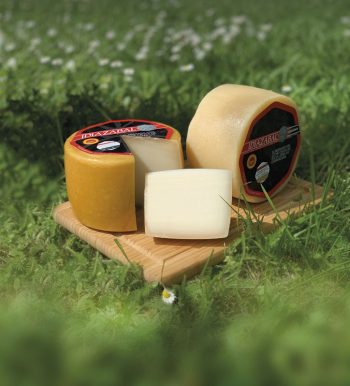
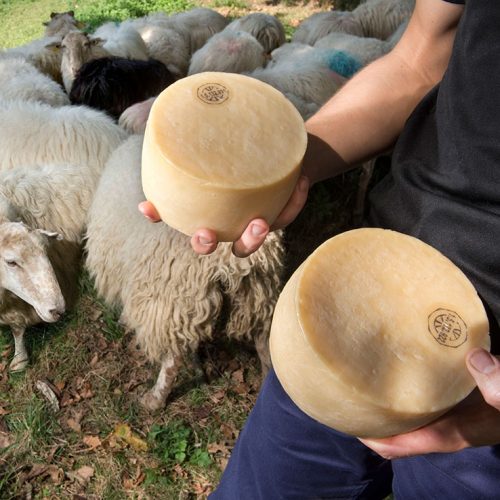
Idiazabal cheese is made exclusively with raw milk from Latxa and Carranzana sheep.
The word latxa comes from the Basque language (Euskera) and means ‘coarse’, in reference to the roughness of the wool of these sheep. The breed’s origin is very remote and its preservation is partly due to the prohibition which for centuries meant that the importation of other breeds was forbidden.
In addition to carrying out periodic controls such as inspections, blood tests and administrative controls, the Idiazabal PDO was the first Designation of Origin for cheeses in Europe to implement technology to genetically determine whether the milk used in Idiazabal cheeses came exclusively from these sheep breeds, as specified by the rules regulating the product. By means of DNA technology, markers which distinguish between breeds are identified with the use of real-time PCR (developed by AZTI and accredited by ENAC) and allow it to be known exactly if the milk used in the production of these cheeses corresponds exclusively to the aforementioned breeds.
The labels of Idiazabal PDO cheeses, whether whole or in portions, display in a prominent place the name and logo of the Protected Designation of Origin and, where appropriate, a numbered hologram back label and a casein nameplate on the cheese’s rind.
Being a product covered by a PDO, the labelling should also include the European Designation of Origin logo.
All cheeses and wedges (or portions) are labelled at origin at the registered cheesemaker’s where it was produced and matured.
